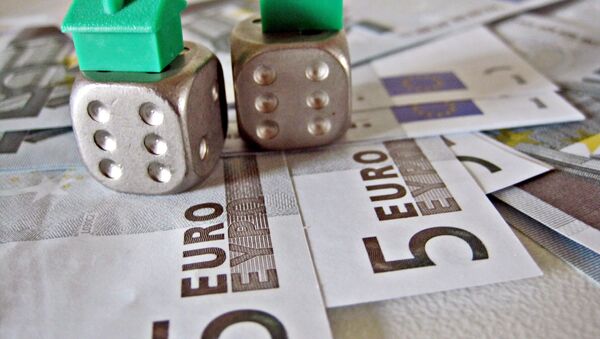A Bloomberg survey of 34 economists has revealed that the majority of respondents (71%) believe that there's still a danger that Greece will be forced to leave the European Union by the end of next year.
#Greece's Euro exit back on the agenda next year, Economists say. http://t.co/JuWWyNl8Lb #Grexit pic.twitter.com/o4LOOn4fP9
— Holger Zschaepitz (@Schuldensuehner) July 21, 2015
Mark down August 17 and the next important day in the Greek bailout saga: http://t.co/xMiLGltir9
— Dan Greenhaus (@DanBTIG) July 21, 2015
"Without some form of debt relief, the package will never be big enough," said Peter Dixon, a global economist at Commerzbank AG in London.
"Loading additional loans onto a country which cannot afford to repay them corresponds to Einstein's definition of insanity — trying the same thing over and over again in the expectation of different results."
Insanity: doing the same thing over and over again and expecting different results — Albert Einstein #grexit
— Bows (@jellyhelmet) July 15, 2015
Greek banks are open for business; the government has cleared two billion euros worth of debt with the International Monetary Fund (IMF) and made an overdue payment of $510 million (€470m) to the Greek central banks and covered off $4.6 billion (€4.2bn) euros of interest payments to the European Central Bank.
But with the big numbers paid off and banks open again — Greek Prime Minister Alexis Tsipras is set to ease withdrawals over the next two weeks and Greece still has to pay the European Central Bank another $3.5 billion (€3.2bn) euros by August 20th.
So the Greek parliament is set to vote through a second package of bailout measures that the government doesn't believe in and many economists don't think will work. "The measures agreed are difficult and the government will not be able to implement them on its own," Parliament Vice President and Syriza party member Alexis Mitropoulos told Greek television station, Mega TV.
"A wide social and political basis is needed, because it is not in the interest of the left wing to implement the most extreme neoliberal post-war policy," said Mitropoulos.
Greece is turning into a 'zombie' state that exists solely to pay off debts http://t.co/J5qcRSCSwj pic.twitter.com/1w1Ad1a6sX
— DRP News Link (@DRPNewsLink) July 21, 2015
Cracks still visible within the Greek government and not enough bailout money to save the country, suggests that Greece's economic woes are far from over — whilst a 'Grexit' still looms on the horizon.



